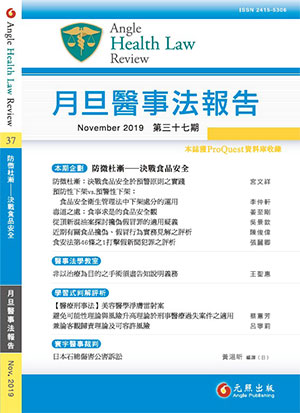【醫療刑事法】美容醫學淨膚雷射案:兼論客觀歸責理論及可容許風險【學習式判解評析】 試閱
Aesthetic Medicine Toning Laser Case: Excursion on the Theory of Objective Attribution and Allowable Risk
客觀歸責理論是判斷因果關係的一種理論,該理論認為行為人所創造之風險造成法益侵害的結果,且該風險是不被容許的,行為人就應該負責。本件法院認為在被害人同意施打雷射之情況下,雖受有二度灼傷,仍屬可容許風險之範疇,故被告醫師雖有違反醫療常規,仍不構成過失傷害。但本文認為不應以被害人同意施打雷射,就認為被害人容許發生包括深二度灼傷之風險,因為該種程度之灼傷會讓皮膚受到不可逆之傷害,應屬容許風險範圍之外。若被告醫師之醫療行為違反醫療常規,在此情形下,仍應負過失傷害之責。
The theory of objective attribution is a theory for judging causality. When the behavior creates the risk which results in infringement of legal interest, and that risk is not allowed, then he should be responsible for it. The court in the case held the opinion that under the case of victim consent to the laser, although he or she was subjected to a second degree of burn, it was still in the range of allowable risk, so the physician as the defendant didn’t commit the crime of negligently causing injury despite violations of medical guidelines. However, this study argues that the victim’s consent to laser should not be considered as allowing a risk including a second degree burn, because it can cause an irreversible damage to the skin and should be beyond the allowable risk. And if the medical action of the defendant (physician) violates medical guidelines, he should still be responsible for the the crime of negligently causing injury.
098-118






